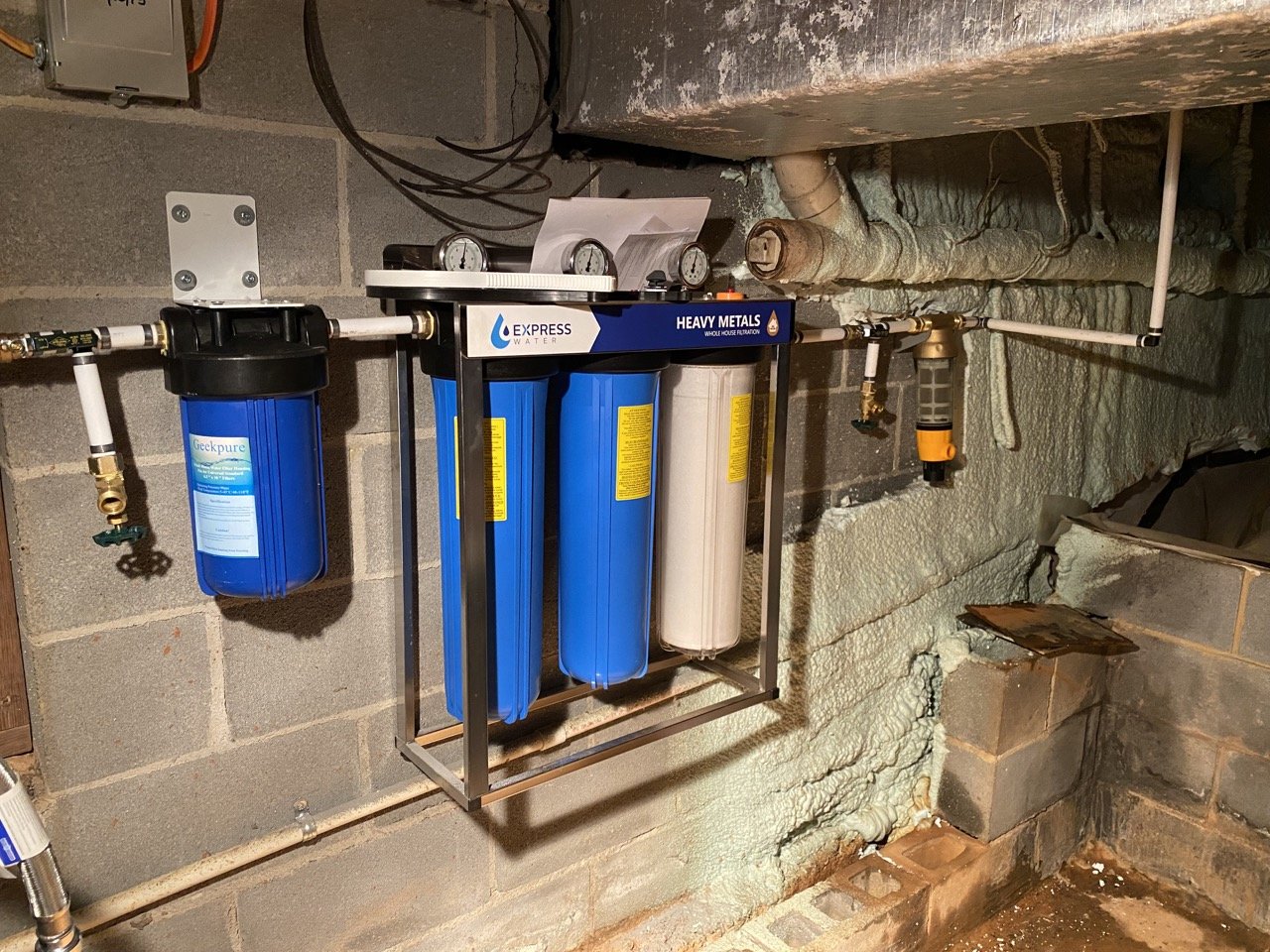Premier Water Filters Irvine for Healthier, Cleaner Water at Home
Premier Water Filters Irvine for Healthier, Cleaner Water at Home
Blog Article
Comprehending the System of Water Filtration Systems and Their Effect On Water Quality
Water purification systems play a vital role in making sure the quality of our water supply, influencing not only our health but additionally the setting at large. As we delve into the internal operations of different purification systems and their impact on water high quality, a deeper recognition for the value of making use of such systems arises.

Importance of Water Filtering Solution
Water filtration systems play a critical role in making certain the safety and security and top quality of our drinking water. These systems are created to eliminate pollutants, pollutants, and fragments from water, making it safe for intake. By removing unsafe materials such as germs, viruses, chemicals, and hefty steels, water filtering systems aid prevent waterborne diseases and shield public wellness.
One secret advantage of water filtration systems is that they improve the preference and odor of water by getting rid of undesirable elements that can impact its palatability. water filtration companies irvine. Furthermore, these systems can minimize the danger of intestinal illnesses that might arise from taking in contaminated water
Moreover, water filtration systems add to ecological sustainability by lowering the dependence on single-use plastic containers, which are harmful to the environment. By offering clean and risk-free alcohol consumption water directly from the faucet, filtering systems help lessen plastic waste and promote eco-friendly methods. In verdict, the importance of water filtering systems in maintaining water high quality and securing public wellness can not be overstated.
Types of Water Filtering Mechanisms
Numerous purification mechanisms are used to purify water and ensure its safety and security for intake. One typical type is sediment filtration, which involves passing water with a filter to eliminate larger particles like dust, sand, and corrosion. Turned on carbon purification is another commonly made use of approach that absorbs contaminations and pollutants, such as chlorine, volatile organic compounds (VOCs), and other chemicals. Reverse osmosis is an advanced method that forces water via a semi-permeable membrane to get rid of ions, particles, and larger particles, supplying very purified water. UV sanitation works in eliminating bacteria, infections, and various other pathogens by subjecting water to ultraviolet light. Ion exchange filtration changes dangerous ions with better ones, like trading calcium and magnesium ions for sodium ions to soften water. In addition, purification involves boiling water, collecting the heavy steam, and condensing it back right into liquid kind to different impurities. Each filtration system has its special staminas and applications, adding to the general improvement of water high quality and view publisher site security.
Factors Affecting Water Quality
Aspects Influencing Water Quality
With an understanding of the diverse filtration systems used to boost water pureness, it is vital to take a look at the complex elements that play a crucial duty in identifying the total high quality of water. One substantial variable is the resource of the water itself. Water stemmed from all-natural storage tanks or underground sources might have contaminations like debris, microorganisms, or pollutants depending upon the surrounding environment. The existence of commercial activities, farming drainage, or urbanization near water resources can significantly affect water top quality.
An additional important aspect affecting water top quality is the level of treatment the water goes through before intake. Water treatment plants use procedures like coagulation, filtration, and sanitation to eliminate impurities and guarantee water safety and security. The effectiveness and upkeep of these therapy centers directly affect the quality of water getting to households.
In addition, human activities such as incorrect garbage disposal, chemical spills, and sewer discharge can introduce unsafe substances right into water bodies, weakening water high quality. Surveillance and managing these activities are vital in guarding water resources and preserving high water quality criteria. Generally, a mix of all-natural factors, therapy processes, and human interventions collectively figure out the quality of water readily available for intake.

Advantages of Utilizing Water Purification Solution
Enhancing water quality with the application of water purification systems uses countless benefits for making certain the safety and security and purity of drinking water. One key advantage of utilizing water filtration systems is the elimination of contaminants. These systems can successfully remove numerous impurities such as chlorine, microorganisms, pesticides, hefty metals, and various other damaging substances, substantially decreasing the danger of waterborne illness.

Additionally, making use of water filtering systems can add to ecological conservation by reducing the reliance on single-use plastic containers. By having accessibility to tidy and secure drinking water directly from the tap, individuals can decrease plastic waste and lessen their ecological impact.
Upkeep Tips for Water Filtration Solutions
Routine upkeep is crucial for making sure optimum performance and durability of water purification systems. To keep your system operating successfully, it is essential to follow a few vital upkeep tips. To start with, consistently replace the filters in your water purification system as per the manufacturer's standards. Obstructed or overused filters can reduce purification effectiveness, enabling contaminants to travel through. Additionally, inspect the system for any type of leaks, cracks, or malfunctions that might compromise its efficiency. Addressing these issues immediately can link stop additional damages and ensure the system functions correctly. Cleansing and disinfecting the system elements, such as the filter housing and taps, can likewise help keep water high quality and avoid bacterial development. Consider scheduling routine expert maintenance checks to recognize any type of potential issues early on. By complying with these maintenance suggestions diligently, you can prolong the lifespan of your water filtering system and continue to appreciate clean, risk-free drinking water for years to find.
Conclusion
In verdict, water filtering systems play an essential duty in boosting water quality by eliminating contaminations and pollutants. Using water filtering systems can provide numerous advantages, including better-tasting water and security versus waterborne diseases.
Report this page